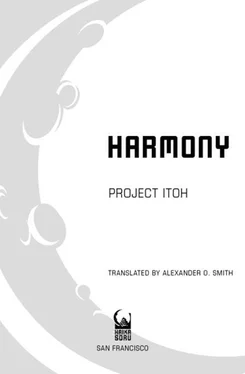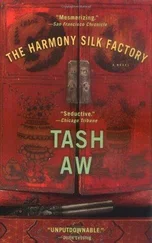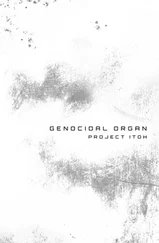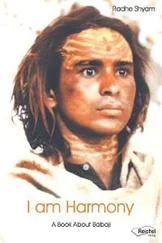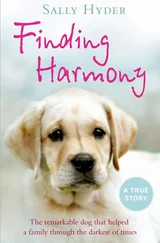Itoh, Project - Harmony
Здесь есть возможность читать онлайн «Itoh, Project - Harmony» весь текст электронной книги совершенно бесплатно (целиком полную версию без сокращений). В некоторых случаях можно слушать аудио, скачать через торрент в формате fb2 и присутствует краткое содержание. Год выпуска: 2010, Издательство: Haikasoru/VIZ Media, Жанр: Старинная литература, на английском языке. Описание произведения, (предисловие) а так же отзывы посетителей доступны на портале библиотеки ЛибКат.
- Название:Harmony
- Автор:
- Издательство:Haikasoru/VIZ Media
- Жанр:
- Год:2010
- ISBN:нет данных
- Рейтинг книги:4.33 / 5. Голосов: 3
-
Избранное:Добавить в избранное
- Отзывы:
-
Ваша оценка:
- 80
- 1
- 2
- 3
- 4
- 5
Harmony: краткое содержание, описание и аннотация
Предлагаем к чтению аннотацию, описание, краткое содержание или предисловие (зависит от того, что написал сам автор книги «Harmony»). Если вы не нашли необходимую информацию о книге — напишите в комментариях, мы постараемся отыскать её.
Harmony — читать онлайн бесплатно полную книгу (весь текст) целиком
Ниже представлен текст книги, разбитый по страницам. Система сохранения места последней прочитанной страницы, позволяет с удобством читать онлайн бесплатно книгу «Harmony», без необходимости каждый раз заново искать на чём Вы остановились. Поставьте закладку, и сможете в любой момент перейти на страницу, на которой закончили чтение.
Интервал:
Закладка:
I hadn’t told anyone at school who my father was—if they knew anything, it was that he was someone important. Nuada Kirie had been the first scientist to put forth the theory that led to the technologies in WatchMe in a thesis he wrote with an associate thirty-five years ago now.
“Concerning the Possibility of Homeostatic Health Monitoring with Medical Particle (Medicule) Swarms and Plasticized Pharmalogical Particles (Medibase).”
Nuada Kirie, researcher
Keita Saeki, coresearcher
Did Miach know? What kind of face would she make if I told her? Would she hate me if I told her that this world she hated so much had all started with my dad? I wondered if I’d get a pardon if I told her that I too hated the world.
“You know we’re living in the future,” Miach said, her grim frown at odds with what should have been a positive statement. “And the future is, in a word, boring. ‘The future is just going to be a vast, conforming suburb of the soul.’ A man named Ballard said that. He was a science fiction writer. And he was talking about here, this place, our world. Our world where the admedistration takes care of everyone’s lives and health. We’re trapped in someone’s antique vision of the future, and it sucks.”
We walked on awhile until we came to a crossroads where Miach stopped and took me by the hand. I froze. This was different. She lifted my hand up before her face, with all the obeisance of a courtier before the queen, and said, “We’ve taken the mechanics of nature—things we didn’t even understand before—and outsourced them. Getting sick, living, who knows what’s next? Maybe even thinking. These things used to belong just to us, they could only belong to us, and now they’re part of the market system, handled externally. I don’t want to be a part of the world. My body is my own. I want to live my own life.Not sitting around like some sheep waiting to be strangled by some stranger’s kindness.”
And then she kissed the back of my hand.
I tried to yank my hand away, but I was already too late. The feel of her lips was permanently inscribed on my skin.
Cold.
That was my first thought. Her lips were cold. But it didn’t feel bad; in fact it left a pleasant chill on my skin, like an aftertaste, that seeped down in between the cells. When I looked up, Miach was already across the street, heading in the direction away from my house.
“You and I are cut from the same cloth, Tuan Kirie,” she called out, smiling again. Then Miach broke into a run and kept running until I could see her no longer.
≡
That was how I met Miach Mihie.
I walked by a park. She was reading a book. That was all.
It was enough to start a friendship that, short-lived though it was, would change the rest of my life.
03
Before I talk about my separation from and reunion with Miach Mihie, a story which begins in the Sahara, I should start by telling you about Cian Reikado’s death by her own hand. It had been thirteen years since the three of us met. Forty-eight hours before Cian did a face-plant in a plate of insalata di caprese with
and died, I was in the Sahara, in a world of painted blue and vivid yellow divided along a single line.
The colors met at the horizon, lush, permeated with pigment, enough to make anyone forget that the Sahara used to be a desert.
Forgotten by man, forgotten from history.
The shimmering waves of heat, the layered petals, even the gentle swaying of stalks in the breeze were all traces left by the painter’s brush—a landscape turned into century-old art. A Mark Rothko abstract in yellow and blue. I sat looking out at it through half-lidded eyes from my vantage point atop a WHO armored transport. My lips relished the texture of the cigar they held, membranes of skin caressing the slight roughness of hard banana leaves. I enjoyed my illicit vice. Our caravan sat at the end of a vast sea of sunflowers, here in the place they once called the Sahara desert. Here, where the RRWs once fell.
RRW
The Reliable Replacement Warhead, a type of warhead produced en masse by a nation called the United States of America, starting on or around the year 2010. These warheads were hailed as the “nuclear warhead of the twenty-first century,” intended to replace the aging twentieth century arsenal with better durability, safety, and ease of use. During the Maelstrom which broke out in the English-speaking countries of North America in 2019, many of these warheads found their way to the Third World. And though EU forces, primarily those of France and Germany, intervened and were successful in disabling many nuclear sites, a final toll of thirty-five RRWs were lost from the American arsenal. Of these, fourteen were later recovered, two were detonated on American soil, and the remaining nineteen were used in various conflicts around the world. (Excerpt from an International Atomic Energy Agency report.)
Thus the sunflowers.
It was an old method, yet still very effective. Whenever a war faded into peace, people planted flowers. The only thing different this time had been the scale of the effort. Enough yellow flowers to send a hippie crying for a flashback. It was old-fashioned phytoremediation. Genetically modified sunflowers sent roots deep into the soil, sucking up strontium and uranium and other pollutants along with the nutrients they needed to grow. In the course of a flower’s life cycle, the land was cleansed.
As with so many other nations, the assembled countries of North Africa that so gleefully purchased nukes from unscrupulous characters in America during the Maelstrom and then dropped them with wild abandon here in their own land were now no more than a chapter in the history books. A brief scene in history’s play from an age in which every war of independence bore the label “terrorism.”
“They’re here, ma reine .”
Étienne called up to me from where he leaned against the side of the transport. He was wearing the standard pink medical troop–issue fatigues. Our guests would be coming, bearing gas lighters and cigars. I spotted a cluster of heads wrapped in blue peeking out from the admedistrative society–planted sea of sunflowers. They stuck out against the brilliant yellow of everything around them. The Kel Tamasheq had always worn those indigo turbans and veils, and they probably always would. They even wore them when they rode to war on camelback, which was impressive considering what terrible camouflage indigo made in a field of flowers.
Four Tamasheq warriors emerged from the lapping edge of the sunflower sea, each with the traditional AK-47 on his shoulder. I got down from the roof of the transport and walked up to their leader.
“Greetings, woman of the medicine people. It has been some time.”
“Greetings, warrior of the Tuareg.”
The man in indigo shook his head. “Do you know what this word Tuareg means in Arabic?”
“Sorry.”
“It means ‘the people abandoned by Allah.’ It is the name given to us by outsiders.”
“So what does Kel Tamasheq mean then?”
“The ones who speak Tamasheq.”
I couldn’t help but think that “the people abandoned by Allah” sounded a hell of a lot cooler, and I told him so. Our gods, Asklepios and Hippocrates, watched closely over us, the “medicine people,” and in their name we built temples to clinical medicine and struck down nearly every disease ever known to man. Our faith was such that we would continue striking them down, and so the medicine people would never be abandoned by their gods. We had even put WatchMe inside our bodies, just to make sure there was no place where the eyes of our gods could not see.
“You seem to dislike your own gods, woman of the medicine people.”
Читать дальшеИнтервал:
Закладка:
Похожие книги на «Harmony»
Представляем Вашему вниманию похожие книги на «Harmony» списком для выбора. Мы отобрали схожую по названию и смыслу литературу в надежде предоставить читателям больше вариантов отыскать новые, интересные, ещё непрочитанные произведения.
Обсуждение, отзывы о книге «Harmony» и просто собственные мнения читателей. Оставьте ваши комментарии, напишите, что Вы думаете о произведении, его смысле или главных героях. Укажите что конкретно понравилось, а что нет, и почему Вы так считаете.
